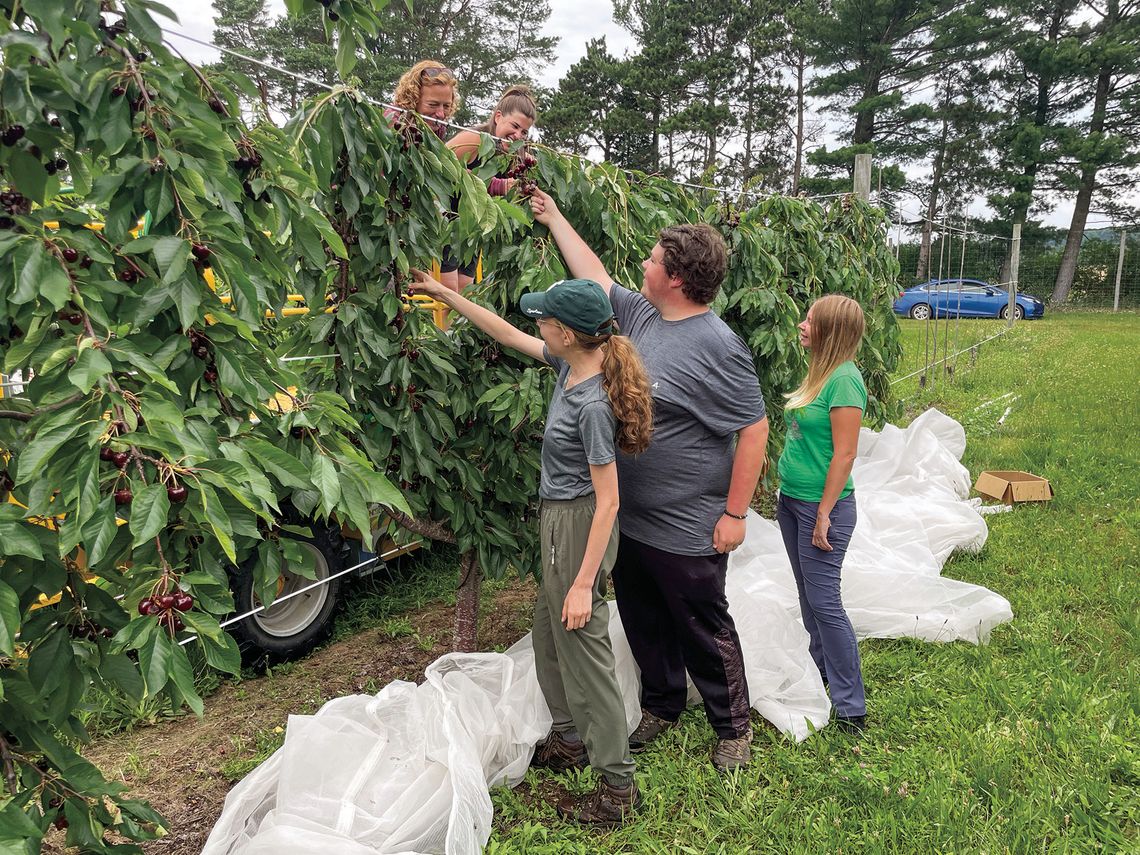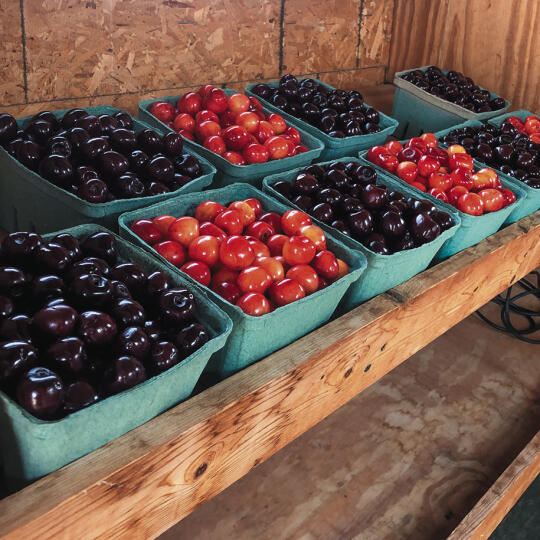Even farm-fresh advocates might grimace when dropping $7 up to $8 into a safety box while picking up a quart of sweet cherries at county roadside markets.
Social media posts during the past week took aim at high sweet cherry prices. But consumers can take solace in knowing that paying an extra buck or two will help Leelanau fruit growers stay afloat while the cost and time required to grow cherries have risen dramatically.
County growers say they don’t want to gouge customers. But it’s been a tough year for them.
“I could go on for half an hour, but it’s the most miserable year I’ve seen,” said fifth-generation Elmwood Township orchardist John Gallagher. “My fresh guys are really bummed. They would tell you they needed to charge more.”
Sweet cherries in recent years have kept fruit growers afloat, turning out consistent yields that fetched better prices than their tart sisters. But a wet spring is drowning out sweet cherry profits in 2024 by cracking fruit during harvest, amping up pest reproduction and spurring on brown rot.
Consequently, that quart of sweets you buy at a farm market may have been sorted from a quart and a half of cherries that were picked.
“There is a lot of sorting,” said Betty Popp, who has teamed with her husband, Rich, in running a farm off East Omena Road in Leelanau Township or 50 years. “They were cracked and some had brown rot. You try to pick the good ones, but others get mixed in.”
The Popps buy sweet cherries by the lug from a neighbor farmer. Betty brings quality control to her job of sorting through the hand-picked cherries to weed out the bad ones.
Years ago Rich encountered quality problems with sweets. “My husband got tired of that, so he went to all tarts,” Betty explained.
The Popp fruit stand, cute by any standard, also gets attention for its quarts of raspberries picked from a patch planted out back years ago. Betty suggests arriving early as the berries sell faster than she can pick them.
Al Steimel, whose farmstand is found south of Suttons Bay off M-22, plans to begin stocking shelves with sweets this week. He, too, will be sorting cracked cherries from the mix.
“They will be good quality. But there aren’t as many good quality cherries out there,” he said.
Steimel relies on Hispanic workers enrolled in a federal government program to harvest his sweets. The foreign workers are paid an average of $27 per hour after fees are included, which eats further into grower profits — if there are any.
“People don’t work for $3.35 an hour, which was what I was paid when I started,” Steimel said.
Many growers are spending more money this season to spray for pests, especially a fruit fly called Spotted-wing Drosophila. Spraying is the only effective way to protect fruit on trees, but that’s expensive and only helps until the next rainstorm.
“You spray and then you get an inch and a half of rain, and you have to spray again. The effectiveness is less,” Steimel explained. Sprays are degradable and USDA approved for health standards.
He recalled selling quarts of cherries for $3 when he started the farmstand in 1998. Unlike commodity pricing paid growers, which has been dismal, sale prices paid by consumers have risen with costs. So growers have come to rely more on farmstead revenue to keep diesel in their tractors.
“Some of the really big guys don’t mess with them. But for smaller operations, I think it’s a big part of what keeps them in business,” Steimel said.
Farmers are in trouble, he continued.
“I got several property tax bills the other day. That hasn’t gone down. Everything we buy has gone up — fuel, fertilizer, labor. It’s a tough deal for guys out there. I was talking to a guy yesterday who has been in it for a long time, and he said this was his worst year ever for quality,” Steimel said.
It’s been a rough start for a new company that had hoped to capitalize on Leelanau’s propensity to grow delicious sweet cherries. Started by Jordan Gallagher — John’s son — and longtime farm worker Cory Bumgardner, the firm lined up sweet cherry sales opportunities at local grocery stores and ascertained the services of a refrigerated truck to keep shelves stocked through July.
But John Gallagher anticipates that his sweet cherry harvest is done because fruit still on trees has deteriorated far quicker than most years.
“They are hardened and I wish they had done better,” Gallagher said.









